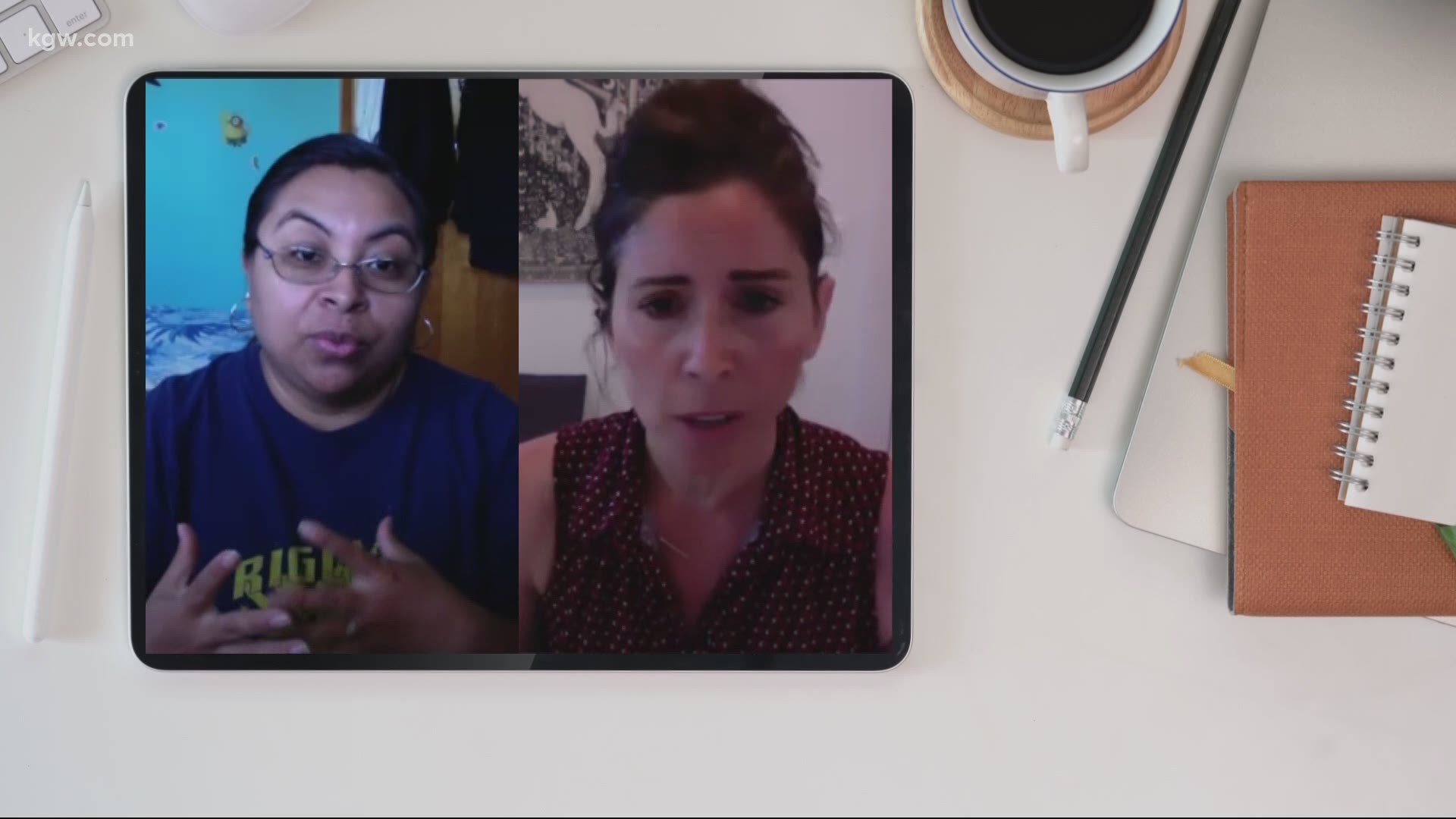PORTLAND, Ore. — Parents keep telling us how concerned they are about the fall and those concerns can be different.
But for parents at Rigler Elementary School in Northeast Portland’s Cully neighborhood, support for the most vulnerable families is their main worry.
A snapshot of Rigler School's student body
- First, it's a Title I school, meaning it gets funding for low-income families.
- It's a dual-language immersion school.
- 80% of the kids are students of color.
- 10-12 languages are spoken at the school.
- Most students are eligible for free or reduced lunch.
The above information is according to Portland Public Schools (PPS).
Rigler parents worried about vulnerable families
“One of my concerns is that we have a lot of families who are in a really vulnerable situation to begin with,” said Jessie Marquez, who has a child going into the first grade at Rigler this fall.
“How are we going to help our needing communities and families? Where is the help going to come from?” Florinda Sanchez asked. She is also a parent with a child going into first grade at the school.
Both Marquez and Sanchez are on the Rigler PTA. They say students and families at Rigler K-5 School were already struggling before the pandemic.
“We started out without enough really outside the pandemic,” said Marquez. “Then you put a pandemic on top of it and it really becomes an untenable situation.”
While Sanchez said it was difficult for some families to get their hands on Chromebook laptops, hot spots and devices back in the spring when schools closed and went to distance learning, Marquez said overall she thought PPS did a good job distributing that equipment. But she said families needed more direction on how to use those resources.
“A lot of families have multiple children... not every family has both parents,” Sanchez said.
“There was a lot of families hurting trying to think about the future, how they're going to pay rent, where's their next meal going to come from, and on top of that having to worry about being a teacher,” she said.
What parents are hoping for fall
With online learning slated to go until at least Nov. 5 at PPS, parents want the district to do more.
“Provide that kind of one-on-one support in home languages, help people understand what are the applications I need to use. How do I log on? How many minutes a day should I be having my child work on these things? How do I establish a routine,” explained Marquez.
“We almost need a step-by-step video... click here, go here, do this,” Sanchez said.
Back in the spring, teachers at Rigler made YouTube videos and tried to help their kids and families figure out the tough situation. But not all families were in a position to access them.
Portland Public Schools responds to parents' concerns
We reached out to PPS about parents’ concerns. A PPS statement said in part, "PPS will be hiring more counselors and social workers. Many of whom are people of color, which was a top priority for us. We are also in discussions with our culturally-specific partners to see how we can partner with them to provide different types of support and engagement through a virtual environment."
A PPS spokesperson said the first two weeks of school at Rigler School will be dedicated to one-on-one time with families who struggled most with distance learning.
In addition, last week, the district said a focus group was held for parents in the Cully neighborhood and right now district leaders are gathering information from families so it can better address needs in the fall.
Other concerns from Rigler parents
Marquez said parents also want specific information about which platforms and apps their kids will be using in the fall. They want to help each other get prepared sooner rather than later. Marquez said she hopes PPS will continue to use online supports, like the reading and math practice tools on the Clever platform, but wants to make sure vulnerable families get the help they need to navigate the platform.
“PPS's Clever platform has evidence-based, dual-language instructional tools that can be used at home. Reading and math programs that provide a lot of academic practice and feedback, and that could buffer children from learning loss,” said Marquez.
While the district put out a list of online resources for families in the past, Marquez said even though it was distributed with good intentions, it can be difficult for families to sift through, especially those who may not speak English as their primary language.
“It’s a completely overwhelming and overloading type of experience. I mean, for me, and I’m an English speaker working in technology, and it was hard for me to figure out how to get my child a couple things she could do that were going to help her in those core competencies in reading and math,” said Marquez.

